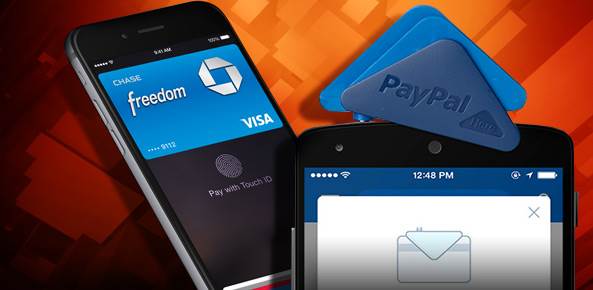As PayPal girds up to go after a big new rival in the online payment arena, it’s doing so by taking shots at that competitor’s security track record. Not long after Apple unveiled Apple Pay, its new contactless payment system, PayPal took out a newspaper advertisement slamming the new service.
Apple Pay, suggests the ad, is no more safe than a selfie in the iCloud, making reference to the service’s recent security breach that enabled hackers to leak nude celebrity photos.
PayPal took out the full-page ad on Monday in The New York Times, San Francisco Chronicle and USA Today. The ad reads in part: “We the people want our money safer than our selfies. PayPal protecting the people’s economy.” The advertising copy is being widely interpreted as a jab at the security of Apple systems, implying that the security of the new Apple Pay service might also be iffy.
The implicit message in the PayPal ad is: If Apple can’t be trusted with photos, can it be trusted with credit card numbers? The difference, though, according to several tech media sources: Apple Pay’s tokenization system apparently doesn’t store users’ credit card numbers locally or online once their cards are scanned, theoretically making Apple Pay more secure than physical credit cards.
A Safer System?
For those reasons, Apple seems confident of Apple Pay’s security. Instead of using credit card details, the system employs Touch ID and produces a unique 16-digit code for each transaction.
“Apple doesn’t save your transaction information. With Apple Pay, your payments are private. Apple doesn’t store the details of your transactions so they can’t be tied back to you. Your most recent purchases are kept in Passbook for your convenience, but that’s as far as it goes,” according to Apple.
Growing Feud
This isn’t the first time PayPal has tried to take a shot at Apple. When Apple’s live stream failed during a September 9 launch event, PayPal communications chief Rob Skinner implied that Apple Pay might be difficult to operate. “Nobody can dispute Apple’s strong track record, but payments is a difficult area. It’s much more difficult to do payments than to keep a live stream working!” he noted.
The barbs from PayPal might stem from the fact that Apple does not offer PayPal, or its subsidiary Braintree, as a recommended payment platform for Apple Pay — even though PayPal is quick to note that Braintree can process Apple Pay payments.
The rumor mill has PayPal and its owner, eBay, looking for a powerful ally in the contactless payment wars. Last week, eBay’s shares spiked in the wake of rumors that Google planned to buy a stake in the company. eBay quickly denied the story.
What remains to be seen is whether the bickering only serves to make consumers more wary of online payment services.
NewsFactor Network







